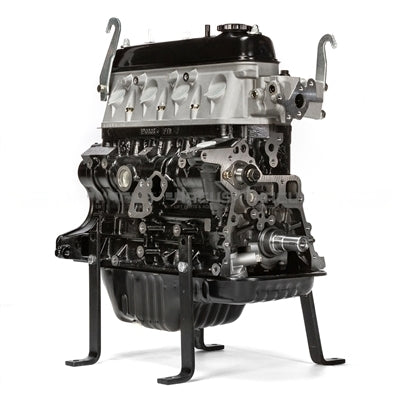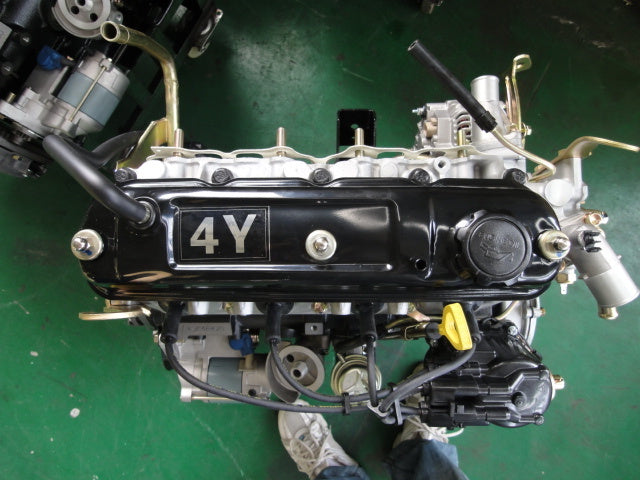Discovering the Different Kinds Of Engine: Which One Fits Your Demands?
In the pursuit to identify one of the most suitable engine type for your certain demands, it is essential to evaluate the distinct qualities and benefits of each choice offered. Interior combustion engines remain to control because of their dependability, while electrical engines are getting grip for their sustainability. Crossbreed engines use a functional concession, and diesel motor attract attention for their power sought after applications. In addition, different gas engines existing cutting-edge remedies, albeit with particular restrictions. Comprehending your concerns will be important in this decision-making process, leading to an exploration of factors that may affect your selection.

Inner Combustion Engines
Interior combustion engines (ICEs) are the foundation of modern-day transportation, powering a substantial selection of automobiles from automobiles to airplanes. These engines run on the principle of converting gas into mechanical power through a collection of regulated explosions within a burning chamber. The most common kinds of ICEs include gasoline engines, diesel motor, and rotary engines, each made to meet details performance and performance requirements.
Fuel engines normally utilize trigger ignition, while diesel engines rely upon compression ignition, resulting in unique differences in fuel performance and power outcome (4y engine). Rotating engines, or Wankel engines, use a small design and smooth procedure, yet are less generally used in mainstream applications
ICEs have undergone considerable improvements in innovation, consisting of the intro of turbocharging and gas injection systems, which enhance overall efficiency and performance. Despite their effectiveness enhancements, ICEs deal with enhancing examination due to their environmental impact, particularly regarding greenhouse gas emissions.
Electric Engines
As concerns concerning ecological sustainability and nonrenewable fuel source reliance grow, electric engines have arised as a compelling alternative to internal burning engines. These engines use electric motors powered by batteries or fuel cells, providing a cleaner and more reliable methods of propulsion.
Among the main advantages of electric engines is their lowered exhausts. Unlike standard engines that shed fossil fuels, electrical engines create no tailpipe emissions, considerably lowering air contamination and contributing to improved public wellness. Furthermore, the efficiency of electrical motors commonly exceeds that of internal burning engines, converting a greater percentage of power from the power resource right into usable power for motion.
Electric engines are additionally remarkable for their peaceful procedure, making them suitable for metropolitan settings. 4y engine. The simplicity of their layout leads to fewer relocating components, which can result in lowered maintenance costs and enhanced integrity gradually
However, difficulties remain, including battery manufacturing effects, billing facilities, and array restrictions. Regardless of these obstacles, the expanding investment in electrical vehicle innovation and renewable energy resources factors toward an encouraging future for electric engines, positioned to play a crucial function in the change toward sustainable transport.
Crossbreed Engines
Blending the advantages of both electric and conventional internal combustion engines, hybrid engines represent a functional solution in the quest for effective and lasting transport. These engines incorporate a gasoline or diesel engine with an electrical motor, permitting for boosted fuel efficiency and decreased discharges contrasted to standard lorries.
Crossbreed engines operate in several modes, utilizing the electric motor for low-speed driving and the internal combustion engine for higher speeds or when more power is needed. This dynamic operation not only improves fuel economic situation but also contributes to a smoother driving experience. Regenerative braking is another crucial function, catching energy usually shed during stopping and rerouting it to recharge the battery.

As consumers progressively prioritize eco-friendliness, crossbreed engines stick out as a functional choice, offering a reliable balance of performance, performance, and ecological obligation. This adaptability makes them ideal for metropolitan commuting and long-distance traveling alike.
Diesel Engines
Efficiency and power are characteristics of diesel engines, which have actually long been favored for their robustness and gas economic climate. These engines operate on the concept of compression ignition, where air is pressed to a heat prior to fuel is injected, sparking it without the requirement for ignition system. This procedure enables diesel motor to achieve greater thermal efficiency contrasted to fuel engines, equating into much better gas mileage and reduced co2 discharges.
Diesel motor are particularly fit for sturdy applications such as trucks, buses, and industrial equipment, where torque and durability are vital. Their layout generally includes more powerful parts to withstand the higher pressures produced throughout procedure, causing longer service life and decreased upkeep prices.

Alternate Fuel Engines
While diesel engines have lengthy controlled the landscape of durable source of power, alternative gas engines are getting grip as practical options for an extra lasting future. These engines use a variety of gas, such as compressed natural gas (CNG), ethanol, hydrogen, and propane, aiming to lower greenhouse gas discharges and reliance on fossil gas.
One considerable advantage of different gas engines is their potential to reduced carbon footprints. For instance, CNG engines discharge fewer pollutants contrasted to conventional diesel engines, making them ideal for urban transportation systems and fleets seeking to boost air high quality. Ethanol, obtained from biomass, not just lowers emissions yet also sustains agricultural economic situations.
Hydrogen fuel cells stand for an innovative growth in this realm, using zero-emission power through a chain reaction in between hydrogen and oxygen. Difficulties such as framework development and production expenses continue to be obstacles to extensive fostering.
Verdict
To conclude, choosing the proper engine kind demands careful consideration of certain demands and choices. Internal combustion engines provide dependability, while electrical engines focus on sustainability and reduced maintenance. Crossbreed engines incorporate the advantages of both, enhancing effectiveness, whereas diesel motor give superior power and torque for heavy-duty applications. Alternative fuel engines present green alternatives, albeit with potential infrastructure difficulties. Eventually, a detailed analysis of driving behaviors and ecological worths will certainly promote a notified choice regarding engine selection.
Hybrid engines offer a functional concession, and diesel engines stand out for their power in demanding applications. The most common kinds of ICEs consist of gas engines, diesel engines, and rotary engines, each designed to satisfy details efficiency and effectiveness needs.
Unlike traditional engines that melt fossil fuels, electrical engines create zero tailpipe emissions, significantly lowering air contamination and contributing to improved public wellness.Hybrid engines run these details in a number of settings, utilizing the electrical motor for low-speed driving and the interior combustion engine for greater speeds or when even more power is needed. Hybrid engines integrate the advantages of both, boosting effectiveness, whereas diesel engines offer superior power and torque for sturdy applications.
Comments on “Understanding the Mechanics Behind the 4Y Engine’s Power and Durability”